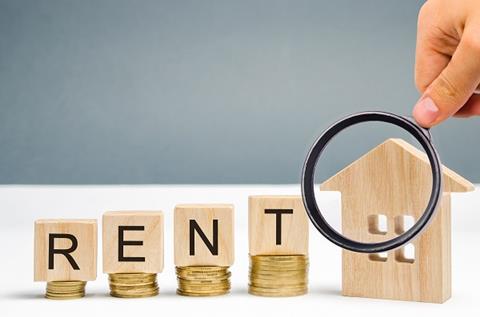MHCLG admits reintroducing rent convergence would help social housing providers’ finances but warns against the measure in consultation paper
The government has seemingly ruled out re-introducing social housing rent convergence due to concerns about the cost-of-living impacts on households.

The Ministry of Housing, Communities and Local Government (MHCLG) yesterday published a consultation paper on its plans to introduce a new five-year Consumer Price Index-linked rent settlement for social housing providers from 2026.
This followed Rachel Reeves’ announcement of the measure in the Autumn Budget speech, which she said would “provide stability” for social housing providers.
However, many in the social housing sector, including the G15 group of London housing associations, have also called for the reintroduction of rent convergence – a policy which had allowed cheaper rents to rise more quickly to ensure alignment between rents on different properties. The scrapping of the policy in 2015 has been estimated by the G15 to have cost its members £2bn.
MHCLG in its rent settlement consultation paper said it had considered whether to reintroduce convergence to allow social rented homes below formula rent to increase by an additional amount over and above Consumer Price Index (CPI) plus 1%.
It admitted this would “allow registered providers to generate more rental income, and hence additional financial capacity to invest in new and existing homes.”
But it added: “Compared to limiting annual rent increases to CPI+1%, this would reduce the disposable income of tenants who are affected by rent increases and result in higher welfare spending.
“These are very important considerations, given the cost of living challenges that households have been experiencing and the significant pressure on the public finances.”
MHCLG therefore said it is not proposing to introduce convergence and that “permitting rents to increase annually by up to CPI+1% is likely to strike the right balance between our objectives.”
In response, Fiona Fletcher-Smith, chair of the G15 and chief executive of L&Q, said the five-year rent settlement “falls short of what is urgently needed”.
She said: “With the government seemingly dismissing rent convergence, it becomes even more important that not-for-profit housing associations get a minimum 10-year settlement to help ensure the long-term stability and confidence necessary to meet the government’s ambitious target of delivering 1.5 million homes during this parliament.
More on the Autumn Budget 2024:
>> Reeves announces £3bn in guarantees for SME housebuilders and confirms £500m AHP top-up
>> Budget hits employers as Reeves raises taxes by £40bn
>> Budget reaction round-up: AHP top-up ‘welcome’ but ‘nowhere near enough’ to meet demand
>> Autumn Budget 2024: key measures for housing at a glance
>> Government allocates extra £230m to tackling homelessness and rough sleeping in Autumn Budget
“It remains our view that similar rents should be paid for similar properties across London, whilst remaining well below market rents.”
In the consultation paper, the government proposes a five-year settlement and said its intention is that there will then be another five-year settlement following on from this.
It is, however, seeking views on a longer settlement of seven or 10 years or a “rolling” five-year arrangement under which an initial rent settlement is set now for 2026-2031.
MHCLG is also asking for suggestions of rent policy measures that would provide confidence in the stability of the policy in the event of an inflationary spike, along with other steps government could take to build confidence.
The document also confirmed a consultation on a new Decent Homes Standard will open early next year.
The consultation on the government’s rent policy runs until 23 December.










No comments yet